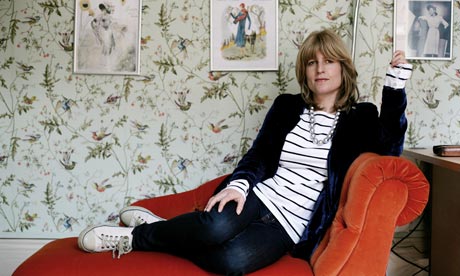Rachel Johnson | Guest Writer
It didn’t occur to me until I was at least 16 or 17 that I wanted to go to University at all. I was far too busy for that. I was, mostly, “having a sleepover with my friend Kate in Mortlake” or that’s what I told my mother I was doing, anyway.
In fact, I was striking out to pubs in Hammersmith to hear rockabilly bands or sneaking off to Stiff Little Fingers concerts at the Lyceum, where I picked up my first love, a Mohican from Billericay. Or I was staying up all night to get lucky at the Roxy in Kings’ Cross, where they held back to back screenings of horror movies starting from midnight.
It was not until my beloved stepfather, an academic and New York University professor, asked me idly what my “plans” were (we were driving on the Westway – I remember it like yesterday) that I realized that I needed a plan at all. I gazed out of the window into the rain and said, “I want to go to University”. I said it to please and impress him mainly.
“Do you? Where?” He asked, as if surprised.
“Oxford,” I said confidently. After all, my parents had met there. My mother had been six months pregnant with me when she did Finals. All my grandparents and aunts and uncles had been to Oxbridge, and my brother was at Balliol.
“Oh,” he said in a dubious tone. “You’d better start thinking about doing some work then.”
Fathers had some control in those days.
To cut a long story short, I did get into Oxford but I feel it was probably a mistake. Still do.
Every day I was there, I had terrible impostor syndrome. I know, for example, that I wasn’t very good at my subject (I got in to read Classics) and would have far preferred to have read English, but my father wouldn’t let me. Fathers had some control in those days. So after having dutifully ploughed through the canons of Austen and Shakespeare in the summer leading up to the Entrance Exam in October (as the system then was) he announced in early September that I was changing to Classics as otherwise I “wouldn’t get in”.
So I went up to read Mods and Greats at New College, Oxford in 1984 and the flipside of imposter syndrome is that every single day at Oxford I felt was a bonus. I felt blessed. I felt determined to profit from the admissions tutor’s mistake and, if possible, to prove them right after all.
What to single out?
In my first year I lived on a staircase and my room was cleaned by a scout, called Gerry, who came into empty my bin and make my room, if anything, rather dirtier. I shared a bathroom with eight others and no one ever cleaned the bath. Having grown up with three brothers this didn’t faze me. Nor did the fairly horrible food in Hall (those who have been to English prep schools are pathetically grateful for any food at all). Oxford always seemed colder and darker and damper than London but also completely magical; Narnia. You could even drink in the pubs that C.S. Lewis drank in (The Eagle and Child). I never tired of gazing over bowling-green grass to honey-stoned quads and watching anxious looking undergraduates in mortarboards cycling over cobbles on their way to Schools, black gowns flying out behind them.
In my second year I came almost top of the room ballot and was able to move into a suite of rooms in the Garden Quad. I had a tall, blonde and amusing boyfriend. He was called Sebastian Shakespeare. For those of you who have seen, or preferably read, Brideshead Revisited, you can see why someone called this was irresistible to a certain sort of romantic bookish girl which, despite my punk past, I secretly was.
At Oxford I developed a work ethic. In my defence, this was the ‘80s. Greed was good and hard work was its own reward. Everyone I knew was swotting, even if they were taking lots of drugs as well to “ease their pain”.
the beginning of something else: of growing up.
In my third year, the daughter of a Cabinet Minister, called Olivia Channon, died in a friend of mine’s rooms at ChristChurch, of an overdose. It was the end of the Bright Young Things and the beginning of something else: of growing up. A sense that every action you took had a consequence. That privilege only took you so far, and into some places no sane person would want to go. That no-one was immortal, or so special even – not even the gilded youth at Commem Balls – that life wouldn’t catch up with them in the end.
I moved into a house on the Cherwell River and for the next two years I divided my time according to my tutor’s precept: work eight hours, he told me, play eight hours, sleep eight hours.
I thought there was a chance – even though I had clearly got in by accident – that I might get a First. I am a cup completely full person, a congenital optimist. So I slaved over my Thucydides, my Herodotus, my Roman poets, my Greek Tragedies. And then missed it.
I don’t regret a single thing I did or didn’t do at Oxford, and after Finals were over, I was still wandering around in eighth week, a few days after the official end of term. I bumped into my tutor in the porter’s lodge.
“What are you doing STILL HERE?” he challenged me, like a Proctor. “Go home! Or you’ll be like me, and you’ll never ever leave.”
Sometimes I wish I never had.







